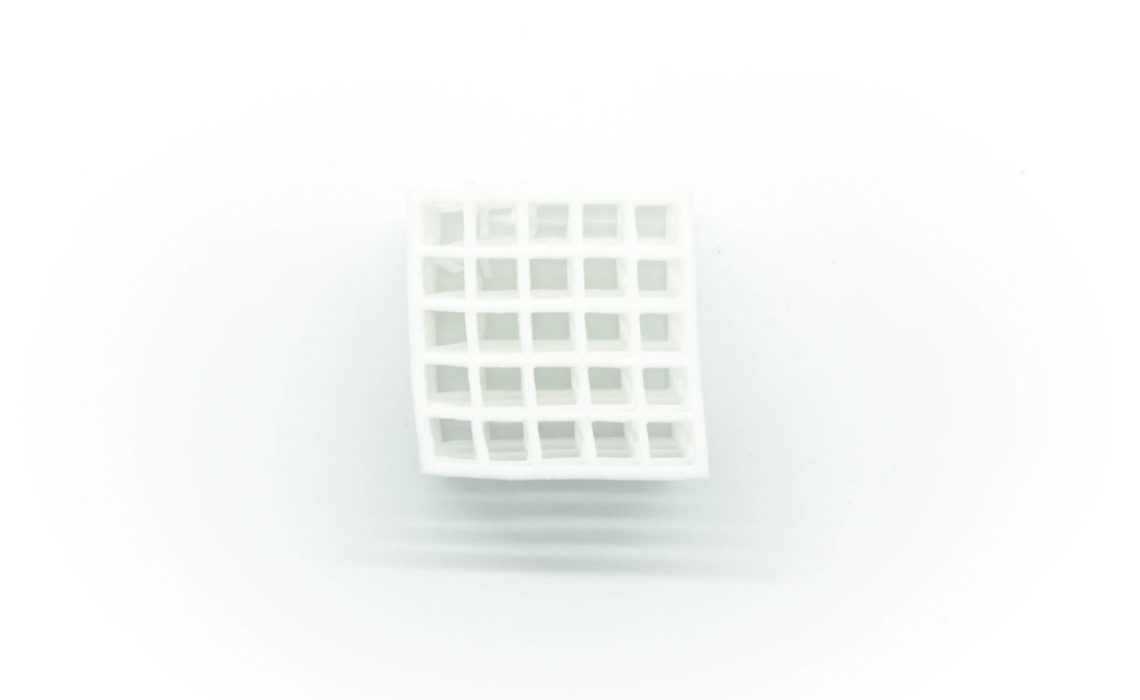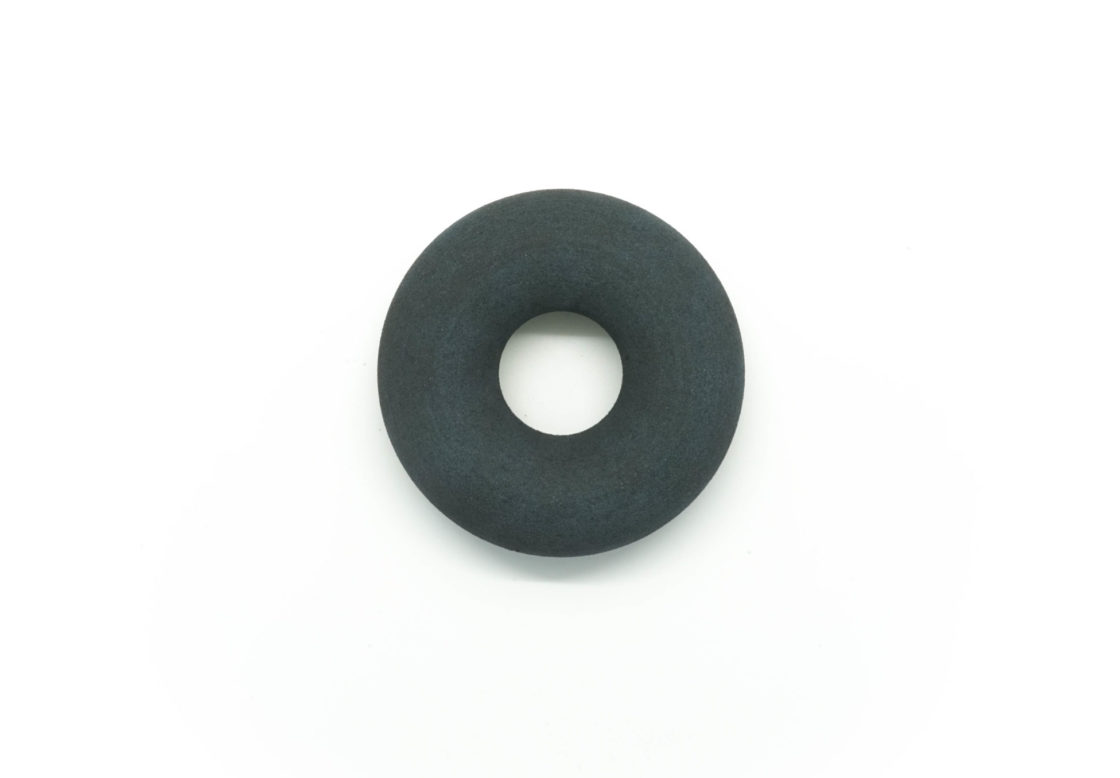
The versatility of Addigy P3001 is evident as manufacturers use this flexible material to 3D print interlocking and industrial parts, while consumer goods and apparel companies are drawn to features like high energy return and biocompatibility.
Addigy P3001 is available on the Shapeways website and at the Shapeways Marketplace, as the result of a long-standing partnership with Covestro. Both companies have come together to combine a unique 3D printing material with scalable technology.
Addigy P3001 Exemplifies Versatility in 3D Printing
As part of a broader group of industrial materials known as Thermoplastic Elastomers (TPEs), Addigy P3001 TPE is referred to as a multiblock thermoplastic copolymer, made up of both hard (Polyester) and soft (Polyether) segments. Production of a sample part for sports equipment like a hockey puck illustrates the strength of Addigy P3001, exemplifying the versatility in this 3D printing material with both flexibility and hardness.
Addigy P3001 meets ISO 10993 standards for biocompatibility, including cytotoxicity. This 3D printing material, regardless of finish, should not cause skin irritation or sensitivity. Because there are no plasticizers like PCBs in Addigy P3001, the material is also suitable for manufacturing toys. Dyed parts that meet biocompatibility certifications will be offered in the near future.
Manufacturing with Addigy P3001 is also safe:
“One of the biggest reasons we were able to add this material so easily and quickly is because of its printability factor, with little to no smoke or odor during production,” says Thomas Murphy, Senior Product Manager at Shapeways.
Shapeways is pleased to offer this flexible material at the Marketplace; in fact, Daniëlle Glasbergen-Benning, Application Development Specialist for Covestro, points out that rigorous strain on the material in testing has shown more stretch and elasticity than many designers and engineers have ever seen. This helps greatly with performance over a long period of time.

3D Printing Applications for Addigy P3001
Because of its excellent mechanical properties and adaptability, Addigy P3001 plays a robust role in numerous applications, to include:
- Footwear like midsoles and insoles, due to good rebound from material and required biocompatibility for insoles
- Protective gear due to shock absorption and impact resistance, making the material suitable for applications like sports guards and impact pads
- Sports equipment like bicycle seats, grips and handles, with Addigy P3001 also reducing vibration
- Consumer goods like glass frames
- Industrial applications like seals, gaskets, and conveyor belt parts, due to high-temperature resistance
- Insulation
- Automotive interiors
SLS 3D Printing Technology
Advanced 3D printing materials like Addigy 93001 offer many great features, but they are also dependent on advanced additive manufacturing technology, whether for rapid prototyping or end-use manufacturing. Shapeways relies on Selective Laser Sintering (SLS) technology, a subcategory of Laser Powder Bed Fusion, for 3D printing Addigy P3001.
“We start with a thin layer of powder, 120 microns in this case, and we use a laser that sinters each trace of the model at that layer,” explains Murphy. “There could be multiple parts nested in that layer, with every one of them sintered at once. After that we put a fresh layer of powder across and the unsintered powder acts as a support for that part. Unsintered powder can later be recycled and reused at a rate of fifty-fifty.”
Shapeways engineers then move on to post-processing, beginning with de-powdering, then vapor smoothing to add a glossy, improved finish and aesthetic.

On-demand 3D Printing with Addigy P3001 SLS
One of the greatest benefits in additive manufacturing is the ability to make products on-demand. Storing 3D models digitally enables manufacturers to eliminate large stores of inventory and allows Shapeways to 3D print accurate, repeatable parts quickly.
“One of our current Addigy P3001 customers designs sports guards, and they have been working with us during their ramp-up period in developing and customizing parts. Each product is personalized for their end-customer,” says Murphy. “The 3D files are sent directly to our Eindhoven manufacturing team and they 3D print the parts.”
“The digital inventory enables re-orders to go right into production and parts on-demand to be purchased.”
Find out more about finishing options and design guidelines for Addigy P3001 here.
About Shapeways
Enjoy the benefits of this advanced technology and a wide range of materials from Shapeways for 3D printing your creations with accuracy, complex detail, and no minimum or limits in terms of mass customization or single part orders. Shapeways has worked with over 1 million customers in 160 countries to 3D print over 21 million parts! Read about case studies, find out more about Shapeways additive manufacturing solutions, and get instant quotes here.


